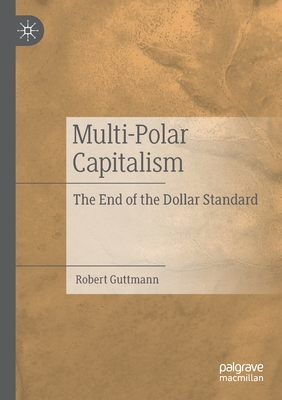Multi-Polar Capitalism: The End of the Dollar Standard

Multi-Polar Capitalism: The End of the Dollar Standard
History teaches us important lessons, provided we can discern its patterns. Multi-Polar Capitalism applies this insight to the crucial, yet often underappreciated issue of international monetary relations. When international monetary systems get first put into place successfully, such as the "classic" gold standard in 1879, Bretton Woods in 1945, or the dollar standard in 1982, they structure relations between the system's centre and the rest of the world so that others can catch up to the leader. But this growth-promoting constellation, a vector for accelerating globalization, runs its course eventually amidst mounting overproduction conditions in key sectors and spreading financial instability. Such periods of global crisis, from the Great Depression of the 1930s to stagflation in the 1970s and creeping deflation during much of the 2010s, force restructuring and policy reforms until conditions are ripe for a renewed phase of sustained expansion.
We are facing such a turning point now. As we are moving from a US-dominated world economy towards a multi-polar configuration, we will also see the longstanding dollar standard give way to a multi-currency system. Three currency blocs rooted in the dollar, euro, and yuan will be dominated respectively by the United States, the European Union, and China, each a power centre representing a distinct variant of capitalism. Their complex mix of competition and cooperation necessitates new "rules of the game" promoting the shared pursuit of global public goods, in particular the impending zero-carbon transition, lest we allow fragmentation and conflict shape this next chapter of our history.
Multi-Polar Capitalism adds to a century of research and debate on long waves, those roughly half-century cycles first identified by the great Soviet economist Nikolai Kondratiev in the early 1920s, by highlighting the role of the international monetary system in this distinct boom-and-bust pattern.
PRP: 1115.91 Lei
Acesta este Pretul Recomandat de Producator. Pretul de vanzare al produsului este afisat mai jos.
1004.32Lei
1004.32Lei
1115.91 LeiIndisponibil
Descrierea produsului
History teaches us important lessons, provided we can discern its patterns. Multi-Polar Capitalism applies this insight to the crucial, yet often underappreciated issue of international monetary relations. When international monetary systems get first put into place successfully, such as the "classic" gold standard in 1879, Bretton Woods in 1945, or the dollar standard in 1982, they structure relations between the system's centre and the rest of the world so that others can catch up to the leader. But this growth-promoting constellation, a vector for accelerating globalization, runs its course eventually amidst mounting overproduction conditions in key sectors and spreading financial instability. Such periods of global crisis, from the Great Depression of the 1930s to stagflation in the 1970s and creeping deflation during much of the 2010s, force restructuring and policy reforms until conditions are ripe for a renewed phase of sustained expansion.
We are facing such a turning point now. As we are moving from a US-dominated world economy towards a multi-polar configuration, we will also see the longstanding dollar standard give way to a multi-currency system. Three currency blocs rooted in the dollar, euro, and yuan will be dominated respectively by the United States, the European Union, and China, each a power centre representing a distinct variant of capitalism. Their complex mix of competition and cooperation necessitates new "rules of the game" promoting the shared pursuit of global public goods, in particular the impending zero-carbon transition, lest we allow fragmentation and conflict shape this next chapter of our history.
Multi-Polar Capitalism adds to a century of research and debate on long waves, those roughly half-century cycles first identified by the great Soviet economist Nikolai Kondratiev in the early 1920s, by highlighting the role of the international monetary system in this distinct boom-and-bust pattern.
Detaliile produsului








